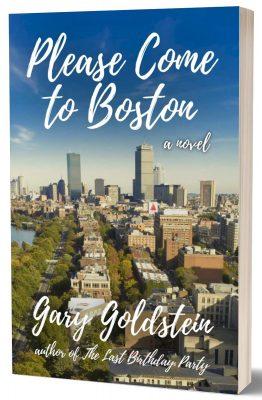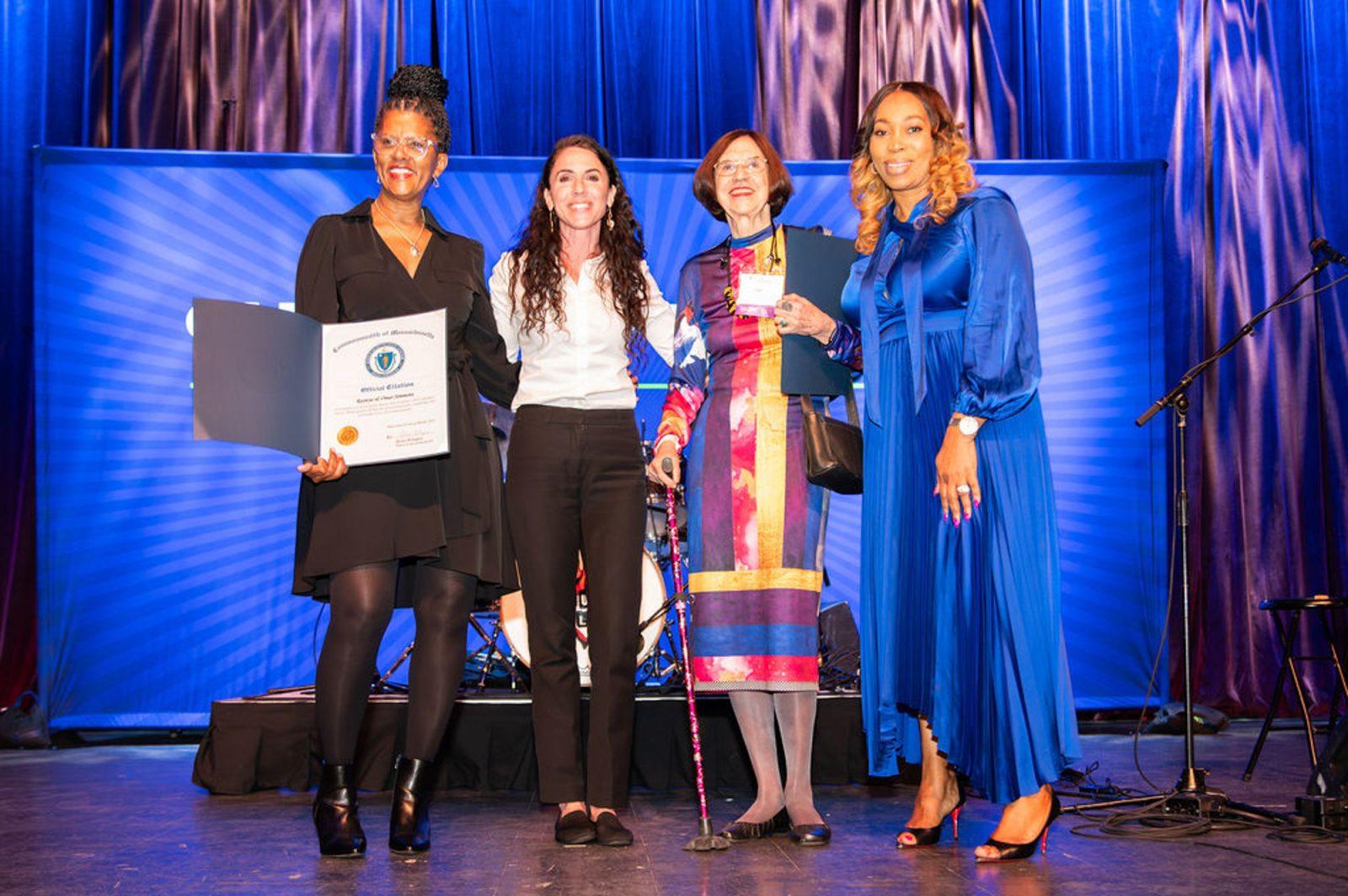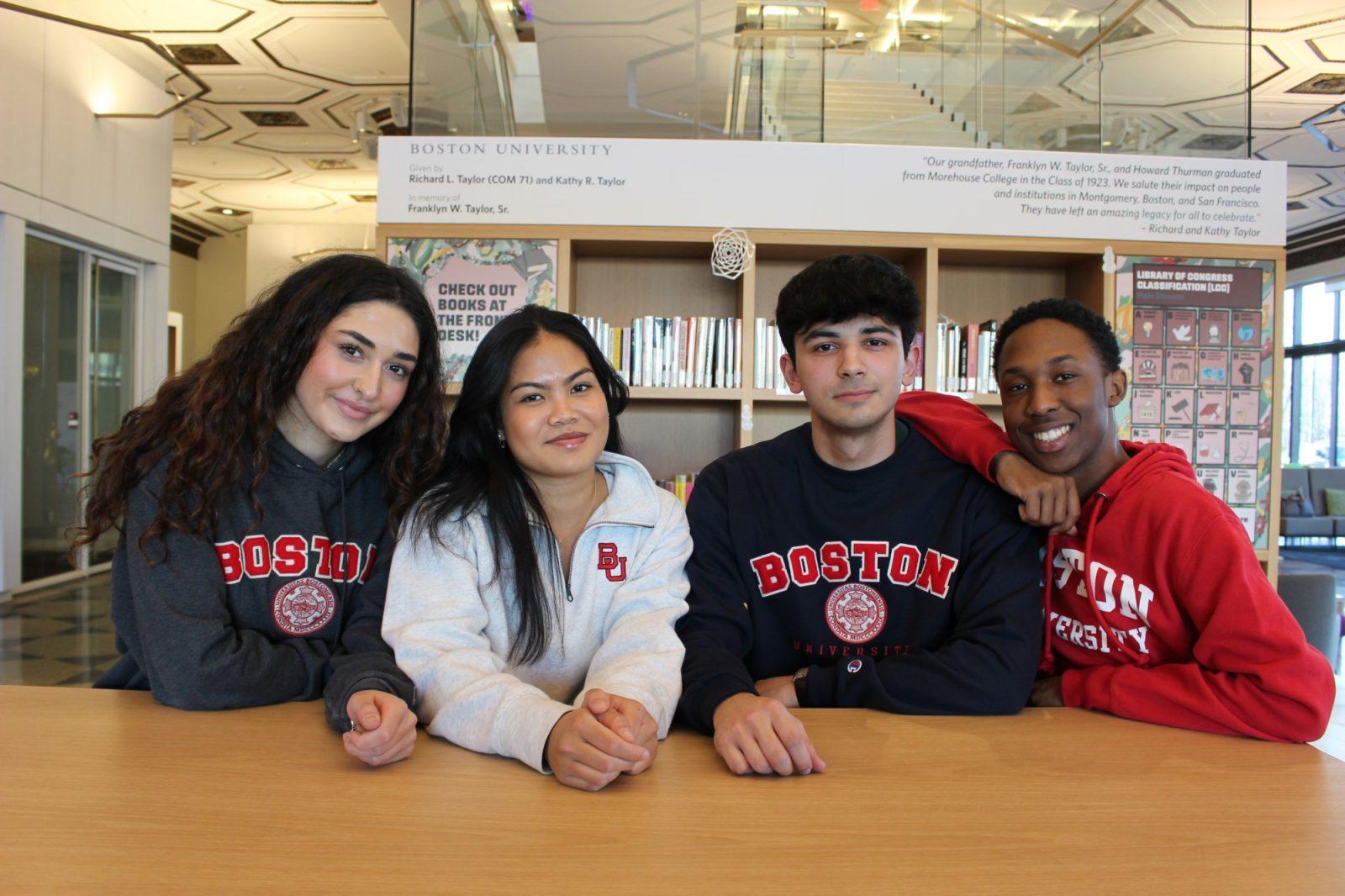Living on the first-ever co-ed floor of Warren Towers, formerly known as 700 dorm, going to class at the School of Public Communication and eating late-night meals at the Kenmore Deli Haus — all things Gary Goldstein did when he was a freshman at Boston University.
BU alum Goldstein entered his first semester in 1974 and graduated from SPC, now known as the College of Communication, in 1978. He said he drew from his experiences as a college student to write his third novel, “Please Come To Boston,” which was published in September 2024 and released in audiobook form Feb. 18.

“Please Come To Boston” is a fictional story about Nicky DeMarco, a boy who is entering his first year at BU in 1975. As Nicky navigates his freshman year, he finds himself in a “romantic, friend triangle” with a girl named Lori and a boy named Joe.
“It’s really about [Nicky’s] coming to terms with the possibilities of life and where he might fit in as the years go on,” Goldstein said. “Also keeping in mind that he’s not sure about his sexuality, per se, but he does fall in love with this guy, Joe, and it’s returned to him.”
The book is a dual narrative, flipping between following Nicky in 1975 and in the present-day, where he returns to Boston for the first time since graduating and is reliving the nostalgia of his college days.
Goldstein knew he wanted to write something “authentic to [himself]” and knew that since he remembered his college days really well, he could write a story that would be applicable today.
“This book really was about living your authentic life…and what happens when you do and don’t live the life that you’re really kind of charted out to have,” Goldstein said. He noted how specifically for LGBTQIA+ community members, authenticity was hard to reach, “because you didn’t know you could.”
Mark Krone, a friend of Goldstein’s who graduated from BU in 1985 and previously worked in BU admissions for 36 years, said he himself has “a great deal of affection for BU” and that “Please Come To Boston” was “very true to life.”
“It was very much the way it felt to be there, to be just starting in college with a whole new group of people exploring Boston and people exploring their sexualities too,” Krone said. “It was all new to us. But in 1975, it was a very different time for queer people then.”
In the book, Nicky lived on the first co-ed floor of 700 dorm, now known as Warren Towers, similar to Goldstein.
“The wonderful thing [is] that anything can happen in Warren Towers,” Krone, who lived on a different floor in 700 dorm, said. “You meet new people all the time, on any particular night, [and] something can happen that could be bad or good. It’s usually good, and it’s usually eye opening.”
To maintain as much accuracy as possible to the time period, Goldstein also did extensive research on Boston and BU itself by calling old friends, finding old newspaper articles and contacting BU faculty.
Mark Feldman, who graduated from SPC in 1980, was another friend Goldstein called to ask about his memories of BU. Feldman said he would assist Goldstein and help him remember certain places, compare notes and discuss what had changed in Boston.
“It really is an apropos book … because it does bring back memories, and it also brings [the question], ‘If you had to do it over, what would you have changed?’” Feldman said. “But, you know, we can’t. There’s no do overs in life.”
While the story is based on the real-life BU campus back then and has references to ‘70s pop culture, none of the characters are based on real people.
Goldstein said though a lot has changed in Boston since 1975, there are still many things that take place in the story that any student can relate to.
“Whoever you are, I think people really end up relating to Nicky’s story, because it has so much of the emotional quotient that everybody feels when they start school,” Goldstein said. “It hasn’t changed that much.”
Now, Goldstein lives in LA and writes scripts for film, TV and stage shows in addition to writing novels. He is also a contributing film critic for the Los Angeles Times.
“My time at BU was very, very valuable to me, and very pivotal and incredibly meaningful,” Goldstein said. “I credit much of the success I’ve had in life, career-wise and emotionally-wise, to my time there. [‘Please Come To Boston’ is] a little bit like my love letter to BU.”


























































































































Ellen • Apr 8, 2025 at 8:53 pm
Looking forward to reading the book. Having a little background information from the author is always helpful. Sounds like it will be a nostalgic read. And who doesn’t like a little nostalgia?